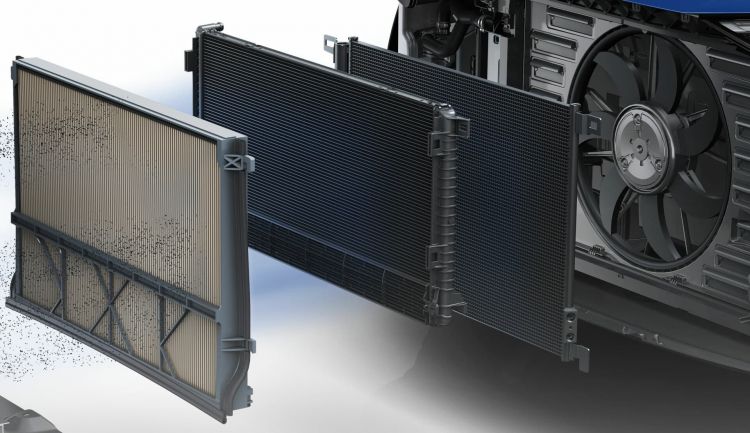Fortunately, particulate filters arrived to drastically reduce one of the most harmful residues for health that are generated in internal combustion engines, microscopic particles, which are released into the air we breathe and, as the Organization warns World Health Organization, can cause serious cardiorespiratory problems. But why would it be interesting to install a particulate filter in an electric car?
Audi has worked with the supplier MANN+HUMMEL to develop a kind of particulate filter that, obviously, is not designed to retain the particles derived from its mechanics, since electric motors do not generate particles, but to filter the particles present on the road and the air around the car.
According to the data with which Audi defends its invention, 85% of the particles generated by automobiles are produced in the brake system, due to tire wear, or road abrasion. Or in other words, electric cars also generate particles.
Electric cars also generate particles, due to the wear of brakes, tires, or road abrasion, which is why Audi has devised a system that would absorb and compensate for the particles generated.
The particulate filter for electric cars from Audi
Audi tells us that this project, which will last for 4 years, began in 2020. The idea behind the Audi particulate filter for electric cars is take advantage of the existing airflow in your vehicles – also in electric vehicles – in the front radiator, so that the passive ventilation on the radiator – which is also necessary in electric vehicles – and the active ventilation of the electric fan, work like a kind of vacuum cleaner and retain the particles in a specific filter , without altering the necessary airflow in the car’s systems.
The principle that has guided this idea from Audi is that, filtering the particles generated by other cars, electric cars would also be able to compensate for the particles they generate throughout their use. According to tests carried out by Audi, using an Audi e-Tron that has traveled more than 50,000 kilometres, in a large city with a high level of pollution, such as Stuttgart, the filter would be more than sufficient to absorb a volume equivalent to that of all the particles generated by the e-Tron. In more polluted cities, a vehicle could be capable of absorbing up to three times the volume of particles generated.
Particulate filters, beyond their contribution to making diesel cleaner, first, and gasoline engines for a few years, have been responsible with some frequency for breakdowns, in many cases annoying, and expensive for drivers. According to Audi, this filter is capable of withstanding between maintenance cycles, so that we would only have to replace it at each periodic review.




